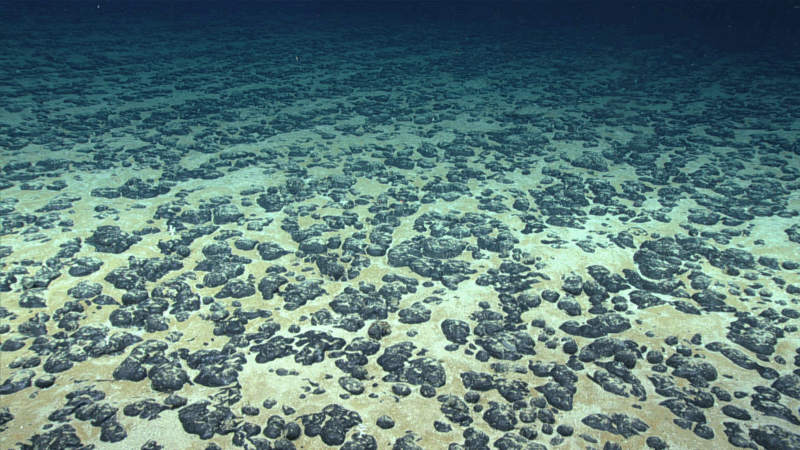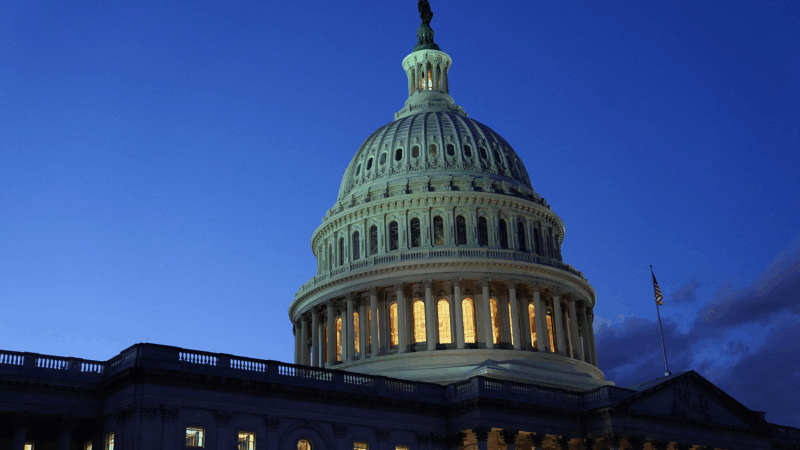The U.S. takes a step towards allowing mining on the ocean floor, a fragile ecosystem
President Trump signed an executive order Thursday aimed at making it easier for companies to mine the deep seafloor, saying it would create “a robust domestic supply for critical minerals.”
There is currently no commercial-scale deep-sea mining anywhere in the world. But companies have long eyed the ocean floor as a potential source of metals like nickel, cobalt, manganese and copper, which are used in batteries for electric vehicles and other technologies.
These metals can be found in potato-sized nodules lying on the ocean floor. Many of the nodules are in the middle of the Pacific ocean, beyond the legal territory of individual countries.
Thursday’s order might circumvent ongoing international negotiations to regulate deep-sea mining.
Those regions have traditionally been overseen by an international organization, the International Seabed Authority (ISA). The ISA has hosted talks for years to try to hammer out a rulebook to govern a potential seabed mining industry. The U.S. did not ratify the treaty that governs the seabed, and is not a voting member of the ISA, though in the past under previous administrations it has respected the ISA process.
In his executive order, Trump instructed federal agencies to expedite the process for reviewing and issuing permits for mining on the seafloor in both U.S. and international territory. It will use a U.S. law from 1980, the “Deep Seabed Hard Mineral Resources Act.”
Scientists and environmental groups condemned the order, arguing that opening the deep seabed for mining could disrupt important marine ecosystems, and damage the fishing industry.
“This is being planned on some of the least resilient ecosystems on the planet,” says Douglas McCauley, professor of ocean science at the University of California Santa Barbara. “It would have catastrophic biological consequences.”
Underwater mining can create plumes of sediment that could suffocate marine life, and degrade the food webs that fish depend on, McCauley says.
There are also important questions about whether we actually need to be mining the seabed to get enough of these minerals for technologies like batteries, says Micah Ziegler, assistant professor of energy and chemical systems at Georgia Institute of Technology.
While a couple of years ago researchers were concerned about the limitations of land-based mining for metals like cobalt and nickel, a variety of alternative battery chemistries have been developed that might reduce the need for those elements, Ziegler says.
“People said we were going to be cobalt-limited and then we found a bunch of alternative chemistries that use less [or no] cobalt,” Ziegler says. “The technologies are changing so rapidly and alternatives are being explored.”
At least one company has expressed interest in applying for a permit to mine the seafloor through the U.S. The Metals Company, a Canadian mining company, said this spring it would seek a permit from the Trump administration. Shares of the company were up 44% by the end of the day Thursday.
Four top U.S. speedskaters to watch at the Olympics
U.S. speed skaters set to compete in Milan are drawing comparisons to past greats like Eric Heiden, Bonnie Blair, and Apolo Ohno. Here are four to watch in the 2026 Winter Olympic Games.
Need a new path in midlife? There’s a school for that and a quiz to kickstart it
Schools across the country are offering courses and retreats for people 50+ who want to reinvent themselves and embrace lifelong learning and discovery.
5 glaring warning signs for Republicans in this year’s midterm elections
Here's why Republicans are facing an uphill battle, particularly for retaining control of the House.
A ‘Shark Tank’ alum needed cash to pay tariffs. This shadowy lending world was ready
How about $350,000 within hours? The pitches flood small businesses: "No hidden fees, No BS." These financial lifelines are barely regulated and can turn into trip wires.
U.S. skater Connor McDermott-Mostowy joins record number of out LGBTQ Winter Olympians
When U.S. speedskater Connor McDermott-Mostowy makes his Winter Olympic debut in Milan, he'll join a record number of out LGBTQ athletes. But of the 46 out athletes, only 11 are men.
Crackdown on dissent after nationwide protests in Iran widens to ensnare reformist figures
Detained Nobel Peace Prize laureate Narges Mohammadi has received another prison sentence of over seven years.







